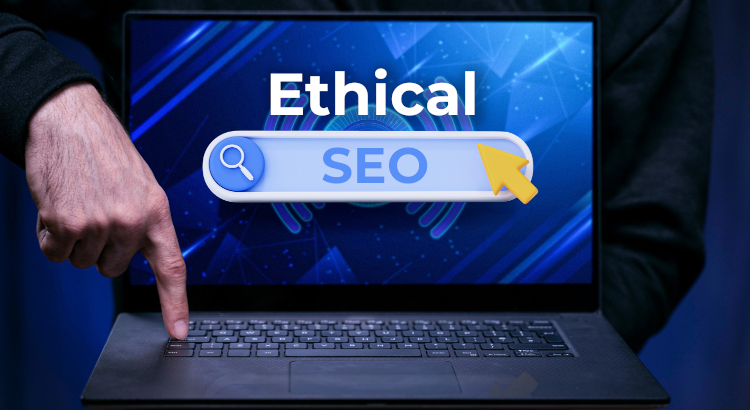Nowadays, businesses strive to enhance their online visibility through search engine optimization (SEO). However, the pursuit of high rankings must be accompanied by ethical practices to ensure sustainable growth. This article explores ethical SEO, highlighting responsible strategies that not only boost organic traffic but also uphold integrity.
What Is Ethical SEO?
Ethical SEO refers to the implementation of strategies and techniques that align with search engine guidelines and prioritize user experience.
Unlike unethical practices that may yield quick results but jeopardize long-term success, ethical practices aims to build a strong online presence through legitimate means. Usually, a professional SEO company will focus on ethical methods to optimize websites.
Ethical SEO Practices
Take a look at some of the ethical search engine optimization strategies.
1. Create Quality Content
Content remains king in the digital realm. Crafting informative, relevant, and engaging content not only attracts visitors but also earns the favor of search engines. High-quality content contributes to user satisfaction and encourages natural link-building.
Related Article: Content Quality vs. Quantity: Striking the Right Balance
2. Adherence to Search Engine Guidelines
Ethical SEO involves strict adherence to the guidelines set by search engines, such as Google. This includes avoiding manipulative techniques like keyword stuffing, cloaking, or using hidden text. Staying within the parameters outlined by search engines ensures a sustainable and reputable online presence.
3. Research Keywords and Optimize
Thorough keyword research is fundamental to ethical search engine optimization. Understanding user intent and incorporating relevant keywords into content and metadata helps search engines accurately index web pages, improving visibility for relevant searches.
4. Focus on the Long Term
Ethical search engine optimization is fundamentally geared towards long-term success. While some tactics may offer quick wins, sustainable growth requires a commitment to building a robust online presence over time. This involves consistent efforts in content creation, optimization, and user engagement.
5. Earn Links in a Natural Manner
Building backlinks is crucial for SEO, but the emphasis should be on natural link-building rather than resorting to manipulative methods. Earning links through high-quality content, outreach, and partnerships fosters a healthy link profile that enhances credibility.
6. Respect the Intellectual Property of Others
Ethical SEO extends beyond technical aspects to encompass respect for intellectual property. Avoiding plagiarism, properly attributing sources, and obtaining permissions when necessary not only maintains ethical standards but also prevents legal complications.
7. Be Transparent
Transparency is key in ethical SEO practices. Clearly communicate information about products, services, and content. Transparent practices build trust with users and search engines, contributing to a positive online reputation.
8. Offer a Good User Experience
User experience is a pivotal factor in ethical SEO. Ensure your website is user-friendly, with easy navigation, fast loading times, and mobile responsiveness. A positive user experience not only satisfies visitors but also aligns with search engine algorithms.
Related Article: Why Is User Experience Crucial for SEO?
In a Nutshell
By following ethical SEO strategies, businesses can not only drive organic traffic but also build a lasting and respectable online presence. Ethical SEO is not just a strategy; it’s a commitment to integrity and long-term growth in the competitive world of online visibility.


